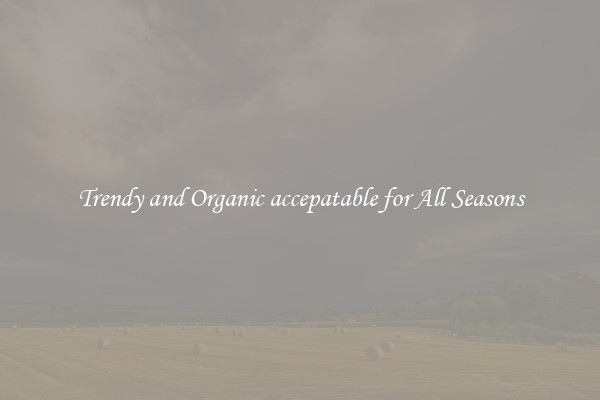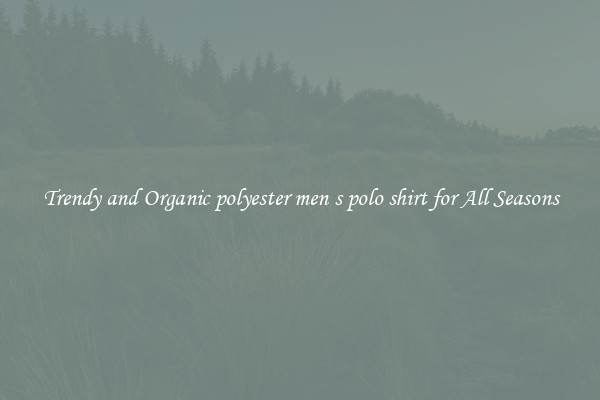Trendy and Organic accepatable for All Seasons
Trendy and Organic: Acceptable for All Seasons

As consumers become more conscious about their impact on the environment, the demand for trendy and organic fashion has been on the rise. The shift towards sustainable and eco-friendly clothing has not only been limited to a specific season but has become a 365-day affair. Today, consumers are looking for fashion options that are not only stylish but also made using ethical practices and natural materials.
One of the most significant advantages of trendy and organic fashion is its versatility throughout the year. With the right choice of materials, organic fashion can cater to all seasons. During the summer months, materials like organic cotton, linen, and hemp provide breathability and comfort. These fabrics have the ability to wick away moisture, keeping the wearer cool and dry. Additionally, they have a softer touch compared to synthetic alternatives, making them perfect for hot and humid conditions.
Moving into autumn and winter, organic fashion can provide warmth and insulation without compromising style. Wool, particularly from ethically raised sheep, is an excellent choice for colder months. It is a natural insulator and does not trap sweat, offering comfort and breathability for all-day wear. Other materials like silk and bamboo can also be used to create cozy and stylish outfits that are environmentally friendly.
The trendiness aspect of organic fashion has also gained momentum in recent years. Designers and brands are now focusing on creating fashion-forward pieces that are not only sustainable but also reflect the latest fashion trends. Gone are the days when eco-friendly clothing was considered dull and plain. Today, you can find organic fashion in various styles, patterns, and colors, catering to different preferences and tastes.
Another reason why trendy and organic fashion is suitable for all seasons is the versatility in design. Organic clothing can be layered or modified to match changing weather conditions. For example, a lightweight organic cotton dress can be paired with a cardigan or jacket for cooler days, while a linen shirt can be worn alone during the warmer months. This adaptability ensures that the wardrobe remains suitable for all seasons, reducing the need for constant clothing purchases.
Furthermore, choosing trendy and organic fashion supports sustainable practices and reduces the carbon footprint. By opting for clothing made from natural materials, consumers contribute to the overall reduction of the fashion industry's environmental impact. Organic farming methods, such as minimizing pesticide and chemical use, help preserve natural resources and promote biodiversity.
In conclusion, trendy and organic fashion is not limited to a specific season but rather provides a stylish and sustainable solution for all seasons. Its versatility, design options, and environmental benefits make it an attractive choice for consumers looking to embrace ethical fashion throughout the year. So, whether it's summer or winter, dressing sustainably and stylishly is now more accessible than ever.

View details

View details

View details

View details








